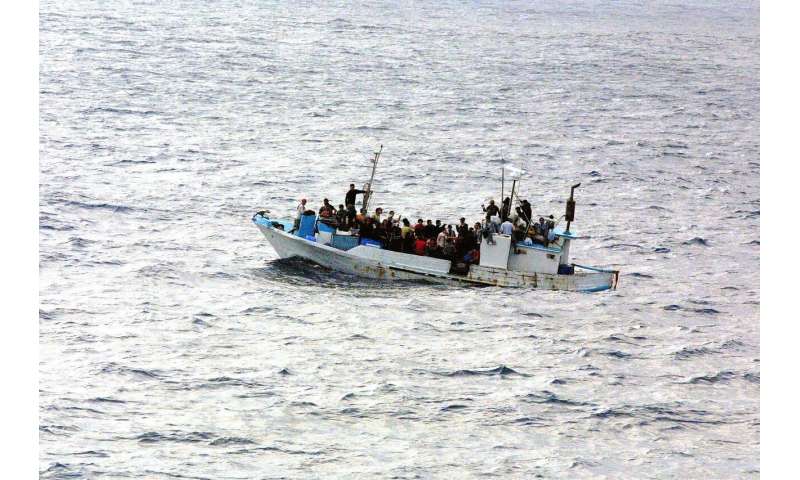
War, torture, human trafficking and extreme poverty are just some of the appalling experiences to which refugees are exposed, both before and during their flight. Experiences such as these put those affected at risk of mental illness, even years afterwards. If that were not enough, after arriving in Germany refugees are often forced to live in conditions which cause further mental stress. A team of researchers led by Hannelore Ehrenreich at the Max Planck Institute for Experimental Medicine has now demonstrated that each additional risk factor puts further strain on the mental health of young refugees. The consequences are functional deficits and behavioural problems, which may be expressed as aggressive and criminal behaviour later in life. It is therefore even more vital to provide care and support for refugees, and to offer them the opportunity to break out of the spiral of negative experiences.
Traumatic experiences, physical and sexual abuse, consumption of cannabis and alcohol, living in cities: these are all factors which increase the risk of a person developing mental disorders. If a person is subjected to several of these risk factors together before the age of 20, he or she is more likely to exhibit aggressive and criminal behaviour later in life.
This observation from previous studies led a group of Göttingen researchers to take a closer look at a specific risk group: young refugees, who often experience traumatic events not only in their home country and during their flight, but often also face mentally stressful conditions after their arrival in Germany. The effect of these risk factors is more pronounced amongst young people, because their brains are still developing, and react particularly sensitively to adverse influences.
Interviews with migrants
To better understand the impact of harmful environmental stress on young refugees, and the consequences for their mental health, the researchers carried out detailed interviews with 133 refugees. The average age of the participants was 22, and they were considered to be in good health. Many had travelled to Germany as unaccompanied minors. In addition to the history taking, the researchers also evaluated the physical health of the participants, and used structured interviews to assess any emerging indications of behavioural problems.
“Many refugees are exposed to a shocking number of risk factors,” reports Martin Begemann, first author on the publication. In addition to the actual migration experience, more than 95 percent of the refugees are affected by other stressful life events, habits or living conditions that make them more susceptible to mental illness. The researchers identified two, three or even more than four additional risk factors in the vast majority of cases. Around half the participants had undergone traumatic experiences before and during their journey; a quarter of participants had suffered physical and sexual abuse. Around 40 percent of participants had scars or wounds from stabbing or shooting injuries, explosions or the resultant burns. Four young men displayed clear psychotic symptoms, two of these also had suicidal thoughts.
Number of risk factors is crucial
Overall, the scientists’ findings showed: the more risk factors that are present in a person, the greater the reduction in their ability to function, and the more likely they were to exhibit initial indications of mental health problems. Precisely which risk factors were present was less significant. Interestingly, close and stable personal relationships offered the refugees no protection from these negative effects: having fled accompanied by family or friends, or having a good social network at the time of the study, had no influence on a person’s current mental state. The authors suspect that social support has only a weak protective effect.
It will be a number of years before researchers will be able to determine the number of young people who actually go on to exhibit psychological problems or even criminal behaviour. However, they expect that they will only be able to contact about half of the participants again. They are likely to lose track of the others due to numerous transfers between refugee centres and deportations to the country of origin.
Source: Read Full Article
